Eurozine looks into the political, social and cultural factors that define the war on Ukraine, from Russia’s neo-imperialist aspirations and the concept of culpability to artists at the forefront of Ukrainian resistance.
This focal point is supported by the C.H.Beck Verlag.
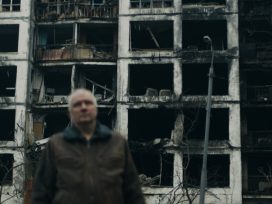
In collaboration with
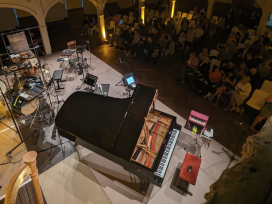
Many Ukrainian musicians and institutions are boycotting the work of Russian composers, from the classical canon to contemporary pieces. While controversial, extracting scores, often long embedded in honed repertoires, is a deliberate post-colonial act, creating new openings and fresh interpretations on the Ukrainian music scene, at home and abroad.
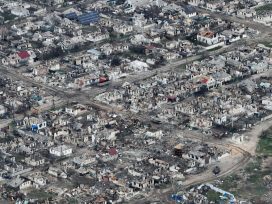
In his book ‘The Torture Camp on Paradise Street’, the Ukrainian author Stanislav Aseyev has written about his experience of imprisonment and torture in occupied Donetsk. Talking to the Polish journal ‘Dwutygodnik’, he explains why he is pessimistic about Russian society ever accepting responsibility for war crimes committed in Ukraine.
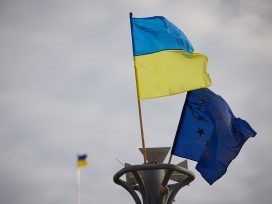
Ukrainians should have known that war would be the ultimate consequence of their identification with the West. Now that Russia has carried out its longstanding threat, the reality has dawned. But can the same be said for Europe?
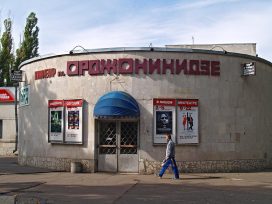
Anthropology of war
Ukrainian film 2014–2022
Since Euromaidan and the first Russian invasion in 2014, Ukrainian filmmakers have been prolifically recording the impact of war on society. The result is an immensely powerful and varied body of work across genres and styles. A survey.
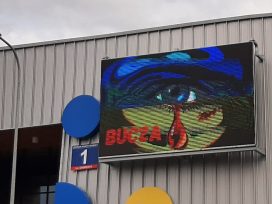
Sexual violence is being used systematically by the Russian military in Ukraine to achieve the political goals of the Russian leadership, and is not just the result of ‘indiscipline’ or abuse of power.
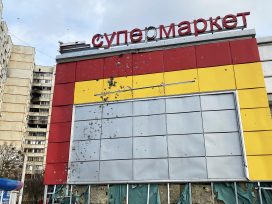
‘There are either heroes or enemies, with no in-between. There is no room for indulgence or softness – just demands, judgments and relentlessness.’ How war makes a taboo of pleasure and the erotic.
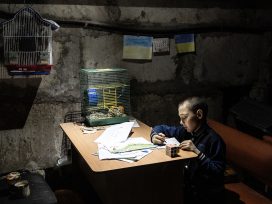
The war in Ukraine is said to be the most documented war in history. But can Ukrainians ever convey their true experiences to outsiders? And can outsiders ever fully empathize? Bleak reflections of a Ukrainian cultural diplomat.
Ukraine denial is the root cause of Putin’s genocidal war. Since he is unwilling and unable to abandon this ideological obsession, talk of negotiations by western ‘peacemakers’ looks like an attempt to avoid responsibility.
If the collective sacrifice during the Second World War cemented Russian identity in the absence of consensus, then the attack on Ukraine does the same but to a different end. The new ‘we’ feels inescapable, whether one supports Putin or opposes him. A leading Russian poet reflects on guilt and responsibility.
Since the Cold War, western literary and educational establishments have reproduced Moscow’s chauvinist view of Ukrainian culture as a derivative of Russian. That attitude is now politically and morally untenable. Ukrainian culture must be liberated along with the multitude of other Slavic languages and cultures belonging to the post-Soviet space.
From pop and rock to rap, metal and electronic: popular music in Ukraine has been a part of the national awakening since 2014. Now, once again, Ukrainian musical culture is under attack from Russia. But the music goes on, despite all odds, with artists contributing in different ways to the war effort.
Terror, collaboration and resistance
Russian rule in the newly occupied territories of Ukraine
Russia is using methods tested in Crimea and the separatist republics to impose its control on the Ukrainian territories occupied since February 2022. Those who remain not only find their lives in ruin but must also make impossible choices in the broad spectrum between collaboration and resistance.
The idea that the purpose of culture is reconciliation confronts Ukrainian cultural activists with a dilemma: how to preserve one’s dignity while keeping the attention of western institutions?
Russia’s war in Ukraine is being fought not only on a physical frontline but also on a virtual battleground. When Putin’s military forces unleashed full-scale attacks, Kremlin-sponsored participatory propaganda simultaneously hit a new level. Investigations monitoring pro-Russia social media channels reveal disinformation patterns with broad reach.
No fiction on massacre
PEN Ukraine conversations
In times of war, art is a source of testimony and helps deal with trauma. Tragic events that are too close in time and space, however, can hinder inspiration and raise moral questions on artistic manipulation.








